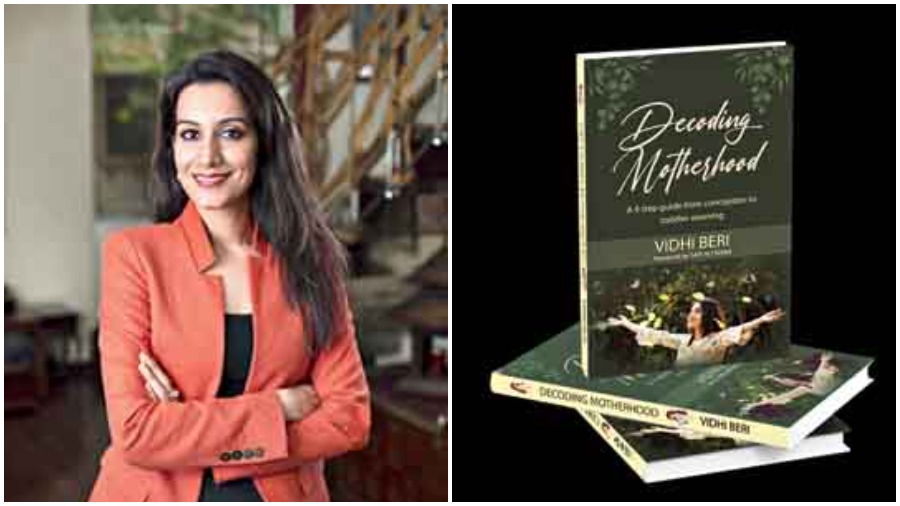Motherhood is not for the faint-hearted. We caught up with paternity and maternity wellness specialist and health transformation coach Vidhi Beri to chat about her book Decoding Motherhood.
What’s the inspiration and the origin story behind the book?
I’ve been working for a decade in maternity and the biggest thing that pops out is mothers and their anxiety levels, and their lack of awareness about it. That is why I chose to write a book that is non-medical. It explains everything from conception to toddler-weaning, and also takes you through the process with a lot of creative solutions, so I have things like dance therapy, sound healing, different forms of how to look at food, developmental milestones, and even basics of breastfeeding your baby.
The book also talks about going through mindful delivery rather than being hysterical about how much pain you’ll have. And I’ve got two chapters in there about partners and intimacy also. So the idea is to champion a process where you think about all of these coordinates rather than thinking about what I need to have in terms of tests, or medicine or injections and vaccinations that I have to have. So none of that stuff.
Tell us a bit about the research that went into the book.
For the book there was no such research. It all comes from the knowledge that I have gained from the past 10 years of working in this field and my 15 certifications. So it is my experiential knowledge... as a maternity specialist, nutrition specialist, and child nutrition specialist.
Could you give us an insight on your favourite chapter in the book?
That would be the chapter on child development and infant milestone, which is towards the end. So both the chapters actually focus on the holistic development of the child. We have the responsibility to bring a child into this world, but that doesn’t mean we control that child. So the chapters talk about learning to organically trust yourself as someone who has all the resources to bring up a child. And in that chapter, I also have snippets on sound healing, and it is a very powerful tool to allow the mother and baby to bond, and also to allow the mother and baby to heal come what may. So whether the child has a failure, or the child has a stomach ache, or has a respiratory illness, the mother can actually tune into the sounds of her own body and her voice and use that to heal her baby.
What’s the singlemost difficult thing that a mother will face during this period?
Usually, breastfeeding is the most overwhelming and difficult part because most mothers face emotional and psychological depression as a consequence of not being aware that this will be so difficult. So it ends up actually being harder than the real delivery and a lot more taxing, and it goes on for six months to a year almost.
How much has modern technology and modern trends changed the way mothers are approaching motherhood?
So, let’s take an example of lactation itself. Here, technology has brought in a whole lot of different bottles, artificial nipples, even breast pumps which are manual and electric. So many times mothers try to rely on these rather than the direct act of feeding. Technology definitely has a role to play when a mother might have a flat nipple, or when she is unable to feed her child because he is in the NICU due to a compromised birth. But a regular mother who does not have any compromises in birth doesn’t necessarily need the technology. She still tries to rely on the technology because she thinks it’s modern so it needs to be done. What I’m essentially trying to say is we have gadgets that have been developed for high-risk cases and also cases where mothers might need to get back to work so they need gadgets to help them out. But when it comes to a mother who is happily lactating and feeding at home, she doesn’t really need any gadgets. She has to rely on her natural process. The idea being that technology is there to help you when you have a complication; it’s not there to always be your guide. You have to rely on your own resources, your own mind, and your own emotions when it comes to motherhood.
How do you think the pandemic will affect pregnancies to come?
So, the pandemic has made mothers more anxious, and it’s really not required because again we’ve seen that the impact on babies is not very high. There is enough science and health information out there to prove that Covid is nothing that you need to be concerned about when it’s about you and the baby.










